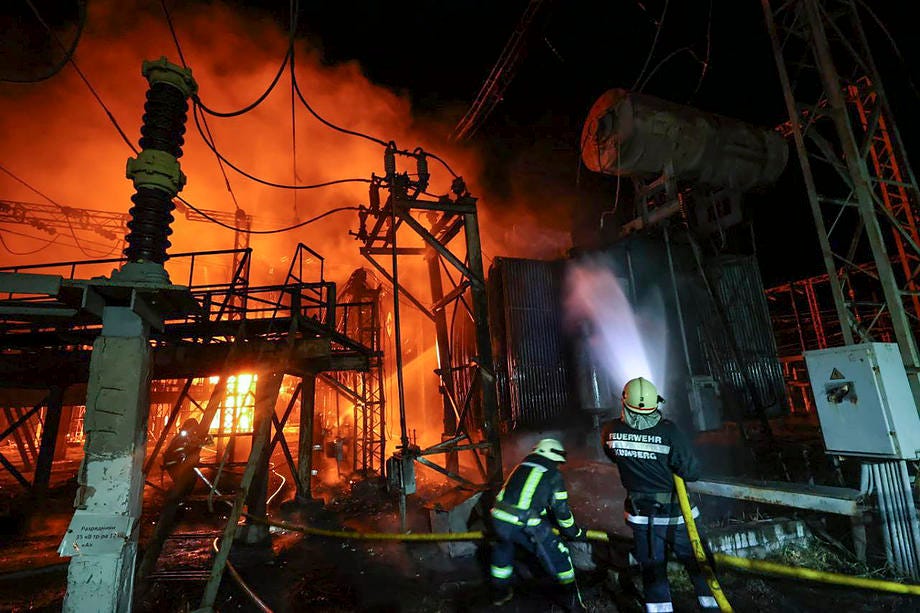To me, the central questions that will have to be confronted—not so much by me as by my children and grandchildren—are whether and how they will escape early death and near-term human extinction from now-irrevocable events set in motion by their grandparents and mine.
Richard Heinberg writes:
My generation basically had all the information it needed. We had books like Silent Spring, Limits to Growth, and Small Is Beautiful. We could have tamped down consumption, but instead, we threw the biggest party in all of human history and we're leaving the next generations to clean up after us.
How that happened is fairly simple to say. We screwed up. Maybe you could say it was through no fault of our own, although that gets harder to utter the longer we ignore what is happening and continue along with extravagant and heedless lifestyles, willfully ignoring the consequences.
I can modestly say I was a style leader from the day I finished schooling and set out on my Appalachian Trail thru-hike in 1972. From that point to this I’ve lived even more frugally than when I was making wilderness camp every night or before that, when I was hitchhiking around the world as a college student.
Joining The Farm, which we considered a “family monastery” in those days, you took a vow of poverty, was which really a pledge of voluntary simplicity rather than devotional self-flagellation in the sense of a confraternity of zealots. We didn’t march through the streets mortifying our flesh in all-day processions. We just didn’t use, or need, money.
That quasi-monastic training stood me in good stead when I visited ecovillages in various countries that were even more austere in their choices than we had been at The Farm. What ecovillagers were looking for was not hair shirts, though. We were not flagellants. We wanted a middle path—elegant simplicity. To borrow a phrase from Howard and Elizabeth Odum, we sought a prosperous way down—satyagraha (truth force), ahimsa (harmlessness), and a touch of hippy style, like maybe three-day music and dance festivals. It was heroism tempered with humor; simplicity celebrated.
And to me, that piece is really the key to unlocking a better future—exploiting our heroic gene. That gene is why people get all teary-eyed at stories about selfless acts—the fireman who rushes in to pluck a child from the flames; the passengers who rush their hijackers; the off-duty cop who jumps up from her seat in the restaurant and blocks a mass shooting.
In these posts, I have often voiced my concern that homo sapiens’ undoing will be our tribal gene—the one that compels us to bond with others of similar genomic makeup, skin color, homeland, religion, language, or other matters of ephemeral importance, merely to be rewarded with dopamine to the pleasure centers of our brains when we disparage, slander or threaten those of another meaningless distinction—the Chinese, the Jews, the Niggers, the Muslims, the migrants, the gays, the what-have-yous. Like male nipples or an appendix, our genetic vestiges have gone from marginal utility to dangerously counter-survival. And yet we still elevate tribalism, perhaps because it helps motivate our children to succeed in school, to win a place on the ball team, or to gain some advantage in business, mortgage-shopping, or neighborhood security.
Today America First or MAGA yard signs or baseball caps signal the kind of tribe we’d like to be in—the one on top. Perhaps we think that by saying our product was Made in America or has all American parts we will sell more of them. But we grab the tail of that evolutionarily vestigial tiger at our peril. Trading the life of a son or daughter to kick some Afghani or Syrian ass takes that tribal gene WAY too seriously.
Incidentally, I recently learned that it may take several more generations before enough of the Farm’s genetic pool has co-mingled that through olfactory or some other sense we begin regarding each other as related and so become truly supportive of each other, as close kin do. We are in our third or fourth generation in many of our families now, but that may only be a part of the way to where we can call ourselves a sustainable community.
A better way to bend that genetic embed to favor our common future could be to show some loyalty to the planet. That might mean changing your diet. It could mean getting rid of a gas-guzzling car. Maybe you should be shopping more at the thrift store instead of Bergdorf’s. Are you making compost in your kitchen for your home garden? These may not seem like heroic acts, but they should. That common pride we feel when we join together—alone apart together—to consistently live these ways—is precisely our best hope of giving something to our grandchildren that they might actually be able to survive.
Meanwhile, let’s end this war. Towns, villages and cities in Ukraine are being bombed every day. Ecovillages and permaculture farms have organized something like an underground railroad to shelter families fleeing the cities, either on a long-term basis or temporarily, as people wait for the best moments to cross the border to a safer place, or to return to their homes if that becomes possible. There are still 70 sites in Ukraine and 300 around the region. They are calling their project “The Green Road.”
The Green Road is helping these places grow their own food, and raising money to acquire farm machinery and seed, and to erect greenhouses. The opportunity, however, is larger than that. The majority of the migrants are children. This will be the first experience in ecovillage living for most. They will directly experience its wonders, skills, and safety. They may never want to go back. Those that do will carry the seeds within them of the better world they glimpsed through the eyes of a child.
Those wishing to make a tax-deductible gift can do so through Global Village Institute by going to http://PayPal.me/greenroad2022 or by directing donations to greenroad@thefarm.org.
There is more info on the Global Village Institute website at https://www.gvix.org/greenroad
The COVID-19 pandemic destroyed lives, livelihoods, and economies. But it has not slowed climate change, a juggernaut threat to all life, humans included. We had a trial run at emergency problem-solving on a global scale with COVID — and we failed. 6.6 million people, and counting, have died. We ignored well-laid plans to isolate and contact trace early cases; overloaded our ICUs; parked morgue trucks on the streets; incinerated bodies until the smoke obscured our cities as much as the raging wildfires. We set back our children’s education and mental health. We virtualized the work week until few wanted to return to their open-plan cubicle offices. We invented and produced tests and vaccines faster than anyone thought possible but then we hoarded them for the wealthy and denied them to two-thirds of the world, who became the Petri-plates for new variants. SARS jumped from people to dogs and cats to field mice. The modern world took a masterclass in how abysmally, unbelievably, shockingly bad we could fail, despite our amazing science, vast wealth, and singular talent as a species.
Having failed so dramatically, so convincingly, with such breathtaking ineptitude, do we imagine we will now do better with climate? Having demonstrated such extreme disorientation in the face of a few simple strands of RNA, do we imagine we can call upon some magic power that will change all that for planetary-ecosystem-destroying climate change?
As the world emerges into pandemic recovery (maybe), there is growing recognition that we must learn to do better. We must chart a pathway to a new carbon economy that goes beyond zero emissions and runs the industrial carbon cycle backward — taking CO2 from the atmosphere and ocean, turning it into coal and oil, and burying it in the ground. The triple bottom line of this new economy is antifragility, regeneration, and resilience. We must lead by good examples; carrots, not sticks; ecovillages, not carbon indulgences. We must attract a broad swath of people to this work by honoring it, rewarding it, and making it fun. That is our challenge now.
Help me get my blog posted every week. All Patreon donations and Blogger or Substack subscriptions are needed and welcomed. You are how we make this happen. Your contributions are being made to Global Village Institute, a tax-deductible 501(c)(3) charity. PowerUp! donors on Patreon get an autographed book off each first press run. Please help if you can.
#RestorationGeneration
“There are the good tipping points, the tipping points in public consciousness when it comes to addressing this crisis, and I think we are very close to that.”
— Climate Scientist Michael Mann, January 13, 2021.
Want to help make a difference while you shop in the Amazon app, at no extra cost to you? Simply follow the instructions below to select “Global Village Institute” as your charity and activate AmazonSmile in the app. They’ll donate a portion of your eligible purchases to us.
How it works:
1. Open the Amazon app on your phone
2. Select the main menu (=) & tap on “AmazonSmile” within Programs & Features
3. Select “Global Village Institute” as your charity
4. Follow the on-screen instructions to activate AmazonSmile in the mobile app







